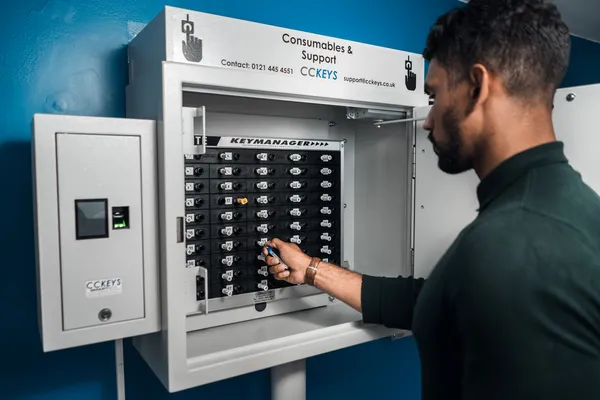
- Mechanical key management system and
- Digital (electronic) system.
- Simplicity: Mechanical systems are typically straightforward to use, with no need for programming or complex setup. This can be a significant advantage in environments where technical skills are limited or where simplicity is preferred.
- No Power Required: They operate without electricity, which means they are always functional even in the event of a power failure, making them reliable in critical or remote areas where power supply issues are prevalent.
- Durability: Mechanical systems often have fewer points of failure and can be more durable over time.
- Cost-Effective: They can be less expensive to purchase and maintain, as there are no costs associated with software licenses, updates, or electronic components.
- Ease of Maintenance: With fewer complex parts, mechanical systems can be easier and less costly to maintain. Regular cleaning and occasional lubrication or part replacement may be all that’s required.
- Consistent Performance: The performance of a mechanical system does not degrade over time due to software issues or electronic component failures, ensuring consistent operation.
- Audit Trail: While not as detailed as those provided by electronic systems, mechanical key management systems can still offer a manual audit trail through peg in and out entry.
- Legal Compliance: Some regulatory environments require mechanical locks for certain security levels. A mechanical system can be a straightforward way to comply with such regulations.
Typical sectors that benefit from key management include; Automotive car dealerships, Estate Agents and property services, GP surgeries and hospitals, schools and care homes.
Whether you choose mechanical or digital, our key tracking systems are assembled and manufactured in the UK and comprehensive support and training are available.




